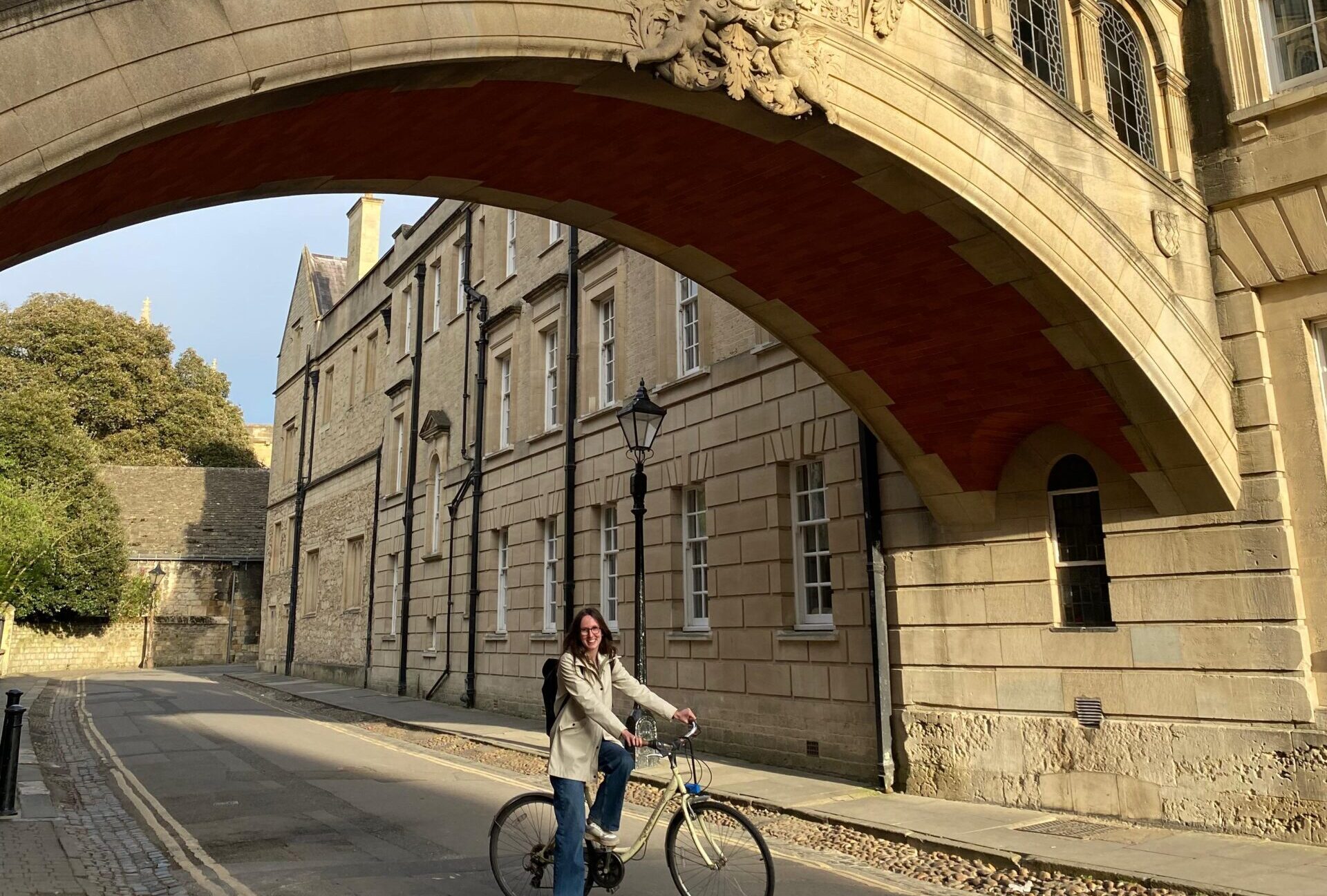Navigating Oxford as a Medieval Research Student
Irene Van Eldere is a PhD candidate within the ERC-project ‘Pages of Prayer’ at Leiden University. As part of her research on early Middle Dutch Books of Hours, she spent two terms at the University of Oxford.
In the first week of my five-month research stay at the University of Oxford, I relied on the bus. Living in Iffley (about a 40-minute walk from the city centre), the bus kept me warm and dry as I settled into a new environment. Yet I began to notice something curious: the cyclists the bus passed on the way often arrived in the city centre at the same time as we did.
Before arriving in Oxford, I had, like any well-prepared PhD student, consulted the extensive (and mostly tourist-oriented) literature on the city. Jan Morris’s classic Oxford informed me that “every sensible Victorian undergraduate […] roamed the hills on his bicycle” (p. 107). Not willing to fall short of my historical predecessors, I took this to heart. My host Henrike Lähnemann had already sent me a link to a local bike rental service, and so I rented a bicycle. That decision had a significant impact on my entire stay: it offered not only convenience, but also a sense of independence.
Coming from the Netherlands, I was accustomed to wide cycle lanes and a national culture shaped around cycling. Oxford, by contrast, initially felt chaotic: buses and taxis raced past with alarming proximity, and learning how to navigate The Plain roundabout filled me with dread. However, once I had overcome those early hurdles, I discovered the joy of seeing Oxford from the saddle of a bike. From the window of a bus, the famous spires had been hidden: I knew the separate buildings, not the cityscape as a whole. Now, speeding beneath Magdalen tower, I could crane my head upwards and admire them fully.
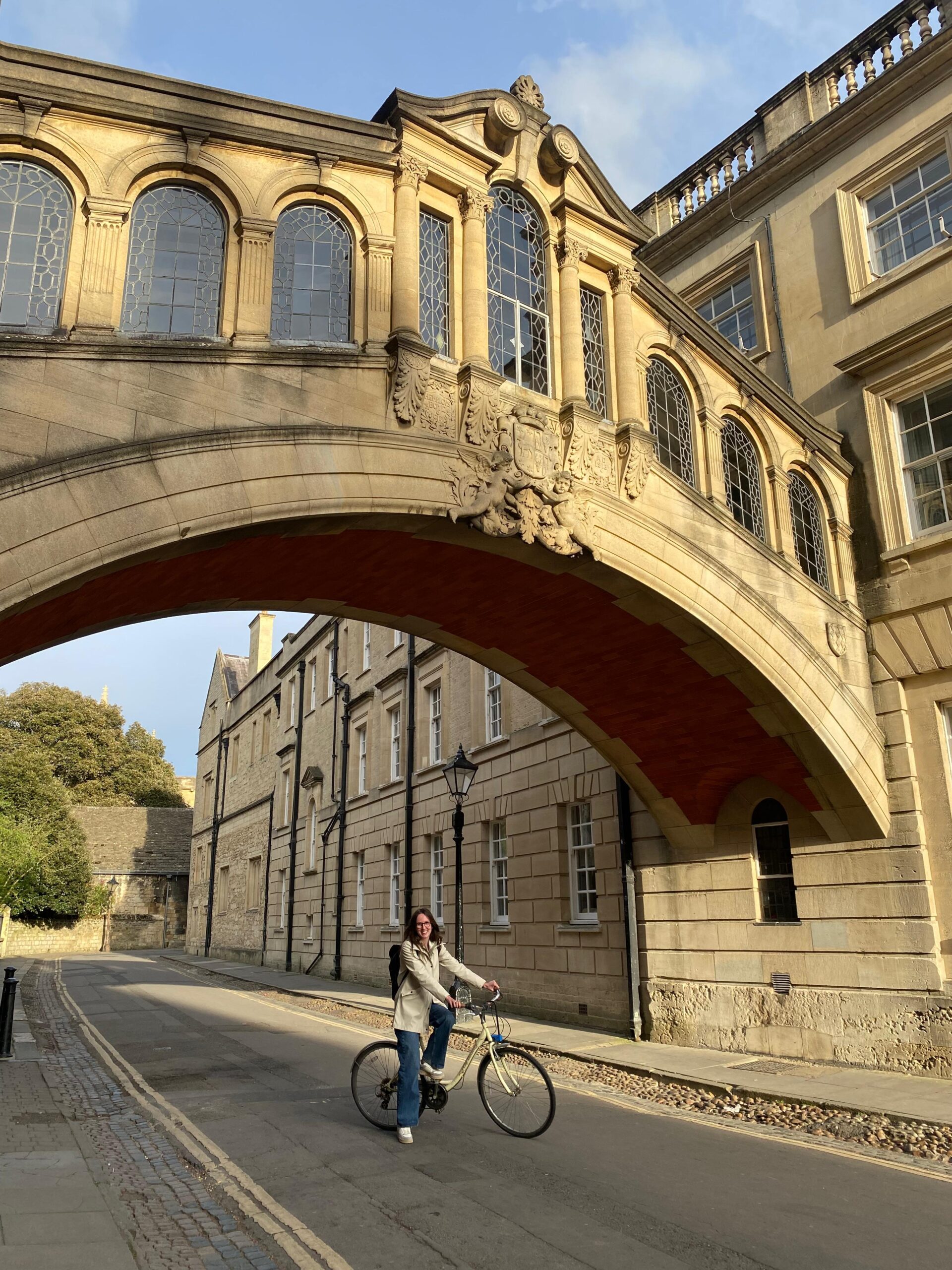
The trick to cycling in the city centre is to avoid the hustle and bustle of the High Street. From my side of town, the winding and narrow Queens Lane offered a terrific option. I would coast by the college I was affiliated with, St Edmund Hall, hear the music practice coming from The Queen’s College buildings, and finally weave around slow-moving tourists under the Bridge of Sighs, often finding myself accidentally immortalised in the background of ten different holiday snapshots. But by the end of that short stretch, I would be exactly where every medieval researcher wants to be: the library. It is there that I would thus advise you to park your bicycle: who knows, perhaps you too will discover that one manuscript which could change the course of your PhD trajectory for the better?
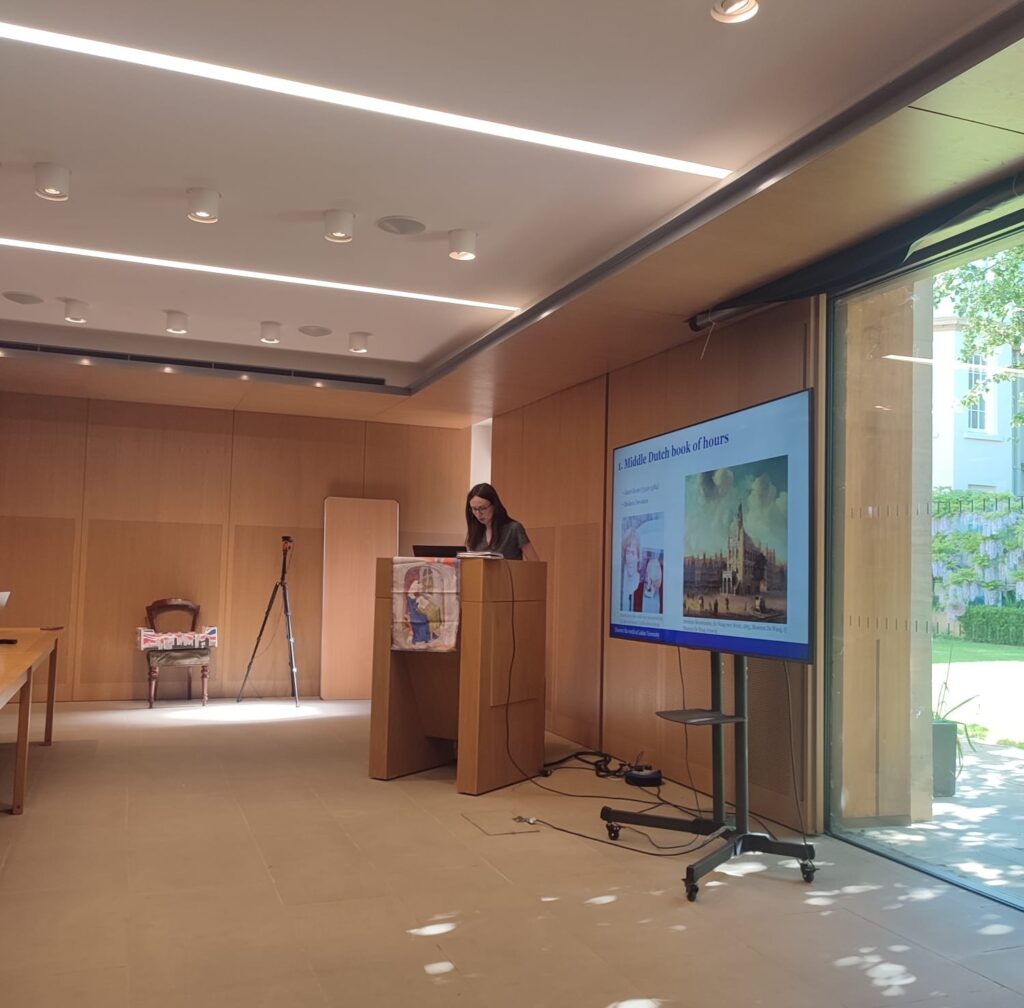
You may want to escape the academic Oxford bubble for a short while. With a bike, you could reach places that remind you that medieval or early modern Oxford is not only found in its extensive library collections, but also in the surrounding countryside. You could take the Thames path to Iffley Church, with its unique Romanesque carvings, or visit the ruins of Godstow Abbey. With a sturdy bike, you could venture further, towards Blenheim Palace or the rolling hills beyond. Cycling does not only enhance your view of Oxfords medieval architecture, most of all it saves time – and everyone who has ever studied or conducted research at Oxford knows that time is the most precious commodity. For example, during Hilary Term, there were not one, but four palaeography seminars taking place, each with its own specific focus. Why wait for a bus (connection) when you could spend that time preparing a presentation on the emergence of the vernacular Book of Hours in the Low Countries or rehearsing your lines for your upcoming performance in the Medieval Mystery Cycle?
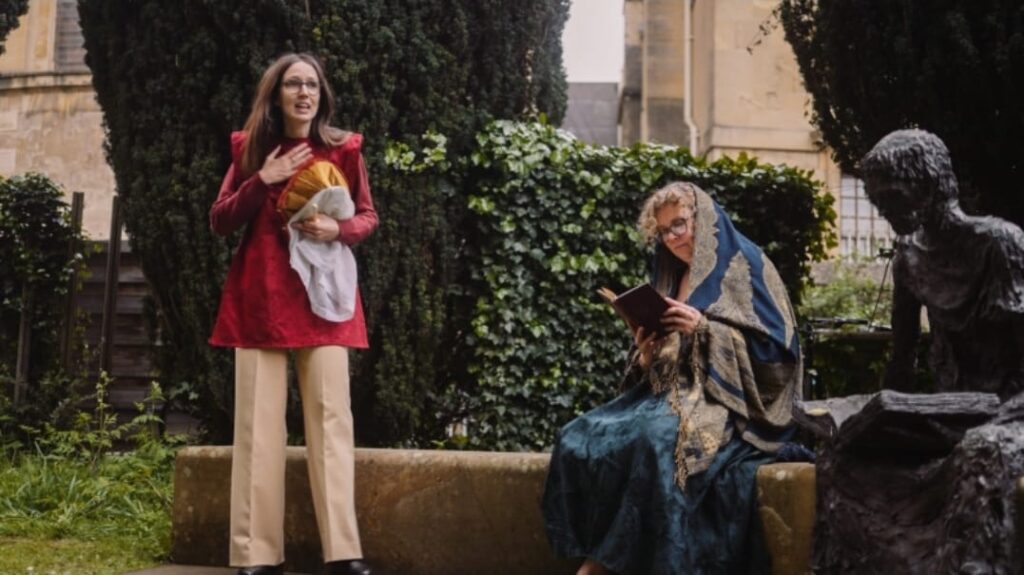
There are more practical advantages. Oxford is not a cheap city. Between accommodation costs, the many bookshops, and the college events, expenses can add up quickly. While you might save on lunch money because very kind-hearted peers will invite you for lunch in their colleges, renting a cheap bike still helps stretch your budget a little further.
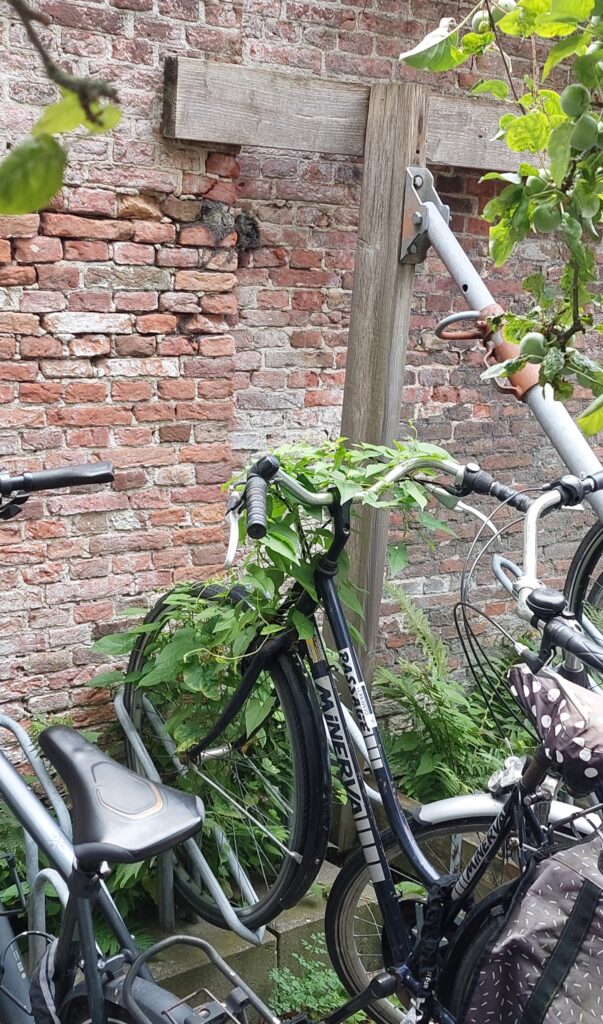
Finally, there are the unexpected perks of owning a bike in Oxford. You will have the ability to stay a bit higher up than the foxes that roam the quieter suburban streets at dusk. They are, of course, more afraid of you than you are of them, but being able to speed away quickly is a reassuring feeling. And for the Oxford residents with a competitive spirit: Cambridge consistently reports higher cycling rates than Oxford (see, for example, this article in the Oxford Mail). You could help to settle the score!
Naturally, I understand that not everyone is comfortable on a bicycle. In hindsight, I realise it was perhaps only fitting that I would rent one. Working on Books of Hours and the cycles of (para)liturgical time, is it not apt that I would embrace the literal cycle as well?
